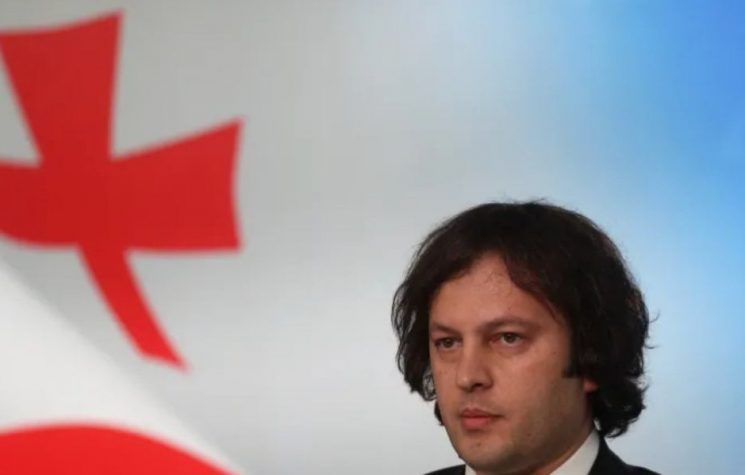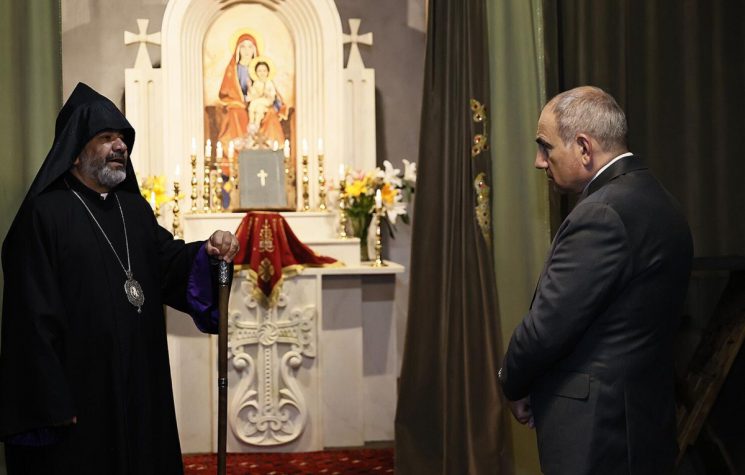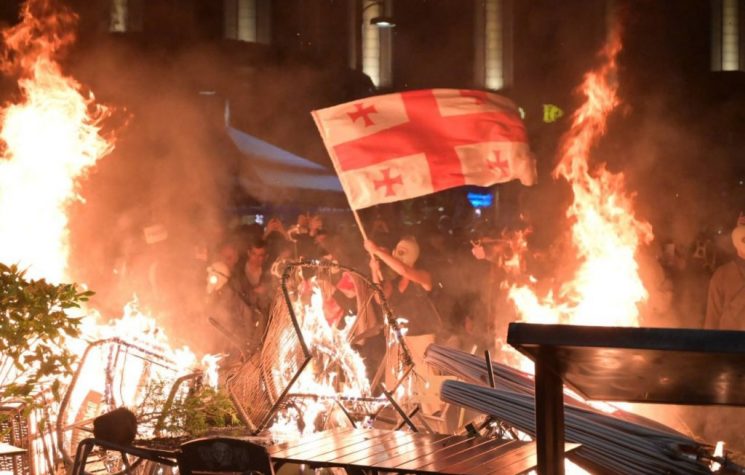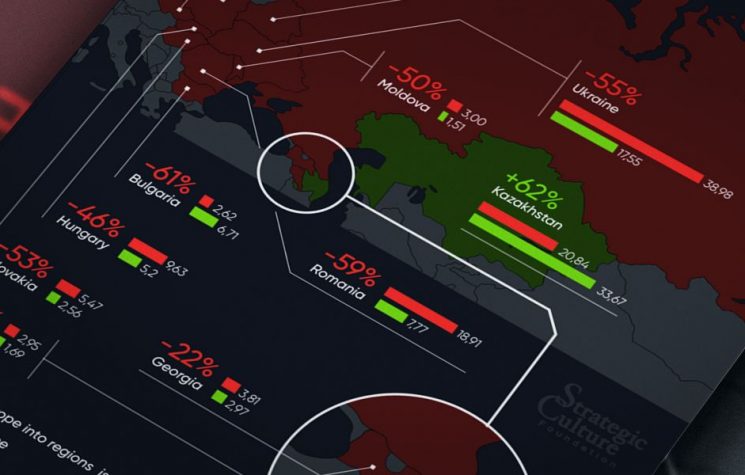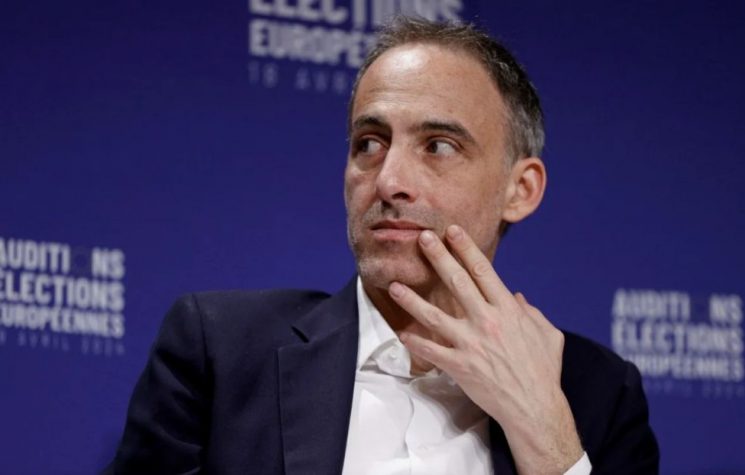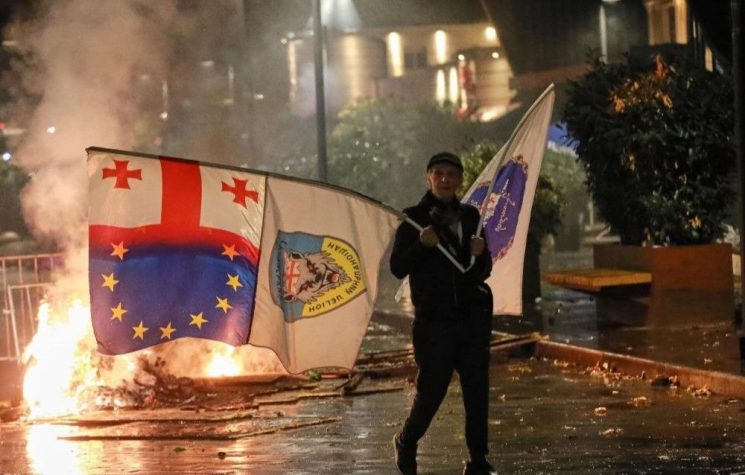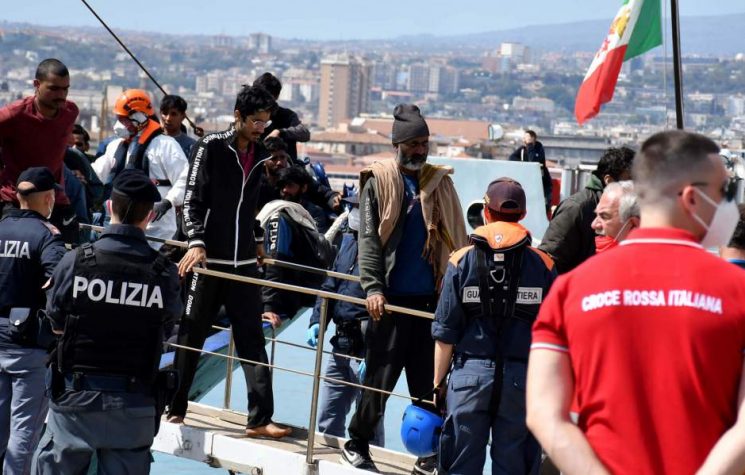The Georgian government is to be commended for speaking the truth about the country’s 2008 war with Russia.
Join us on Telegram![]() , Twitter
, Twitter![]() , and VK
, and VK![]() .
.
Contact us: info@strategic-culture.su
The Georgian government is to be commended for speaking the truth about the country’s 2008 war with Russia. It exposes the lies that the United States, European Union, and NATO have used to inflame conflict and tensions with Russia, not just over Georgia but also the ongoing proxy war in Ukraine.
This month marks the 17th anniversary of a five-day conflict in the South Caucasus nation, which cost hundreds of casualties on the Georgian side and resulted in deeper splits with separatist regions of South Ossetia and Abkhazia.
In a forthright condemnation, Georgian Prime Minister Irakli Kobakhidze laid the blame for the war on a treasonous gamble by then-President Mikhail Saakashvili, who, he indicated, started the conflict in a plot against Russia, masterminded by the United States and NATO partners. The disgraced Saakashvili is currently serving a prison sentence in Georgia for multiple corruption crimes.
Indeed, this version of history is supported by a report commissioned by the European Union in 2009, which confirmed that the Saakashvili regime started the hostilities by attacking South Ossetia. But for 17 years, the West has been telling barefaced lies.
Significantly, it should also be noted that this week the United States adopted a new position on the 2008 war by not endorsing – for the first time – a statement by European governments that reiterated condemnation of Russia for alleged aggression against Georgia. That statement, drawn up by Britain, France, Denmark, Greece, and Slovenia at the United Nations Security Council, perpetuates the false claims that Russia is to blame for the 2008 war.
One might think that European states should defer to the official view of the Georgian PM and his government. But this discrepancy alludes to the bigger problem of foreign interference in Georgia’s sovereign affairs, whereby the European Union refuses to recognize the authority of the present Georgian government because the EU claims that its election victory last year was not valid. More on that in a moment.
The 2008 conflict was started by former President Saakashvili when he ordered a massive artillery assault on the South Ossetian capital, Tskhinvali, on the night of August 8 that year. Georgian forces also invaded the neighboring territory and attacked Russian soldiers stationed there as peacekeepers. Russia responded robustly and quickly pushed Saakashvili’s forces back into Georgia. It was a humiliating defeat and a debacle for NATO. A ceasefire was called on August 16. Russia then declared official recognition of the Republic of Ossetia and the Republic of Abkhazia, in a blow to Georgia’s territorial claims.
What seems to have been behind the war was a calculated provocation. In April 2008, NATO offered future membership to Georgia and Ukraine in flagrant defiance of Russia’s opposition to what it considered, and continues to consider, a red line threat to its national security. It seems that the Georgian government in Tbilisi wanted to provoke a crisis with Russia over the breakaway South Ossetia region as a pretext for NATO involvement. As it turned out, NATO balked at the fierce Russian response.
That is precisely what the current Georgian government is referring to in its condemnation of Saakashvili’s treasonous war under the direction of NATO powers.
It wasn’t the only episode of treason in Georgia’s recent history since it gained independence in 1991 after the dissolution of the Soviet Union. The former Soviet republic has been ravaged by years of Western interference, which made it into a plaything of U.S. and NATO geopolitical interests to antagonize Russia. The country has also added strategic importance, given its proximity to the vast Caspian oilfields. Western interference was similar to what has played out in Ukraine. Georgia was intended to be a second front against Russia to its south, just as Ukraine is the first front against Russia to its west.
Fortunately, in more recent years, the Georgian people, under the sensible direction of the Georgian Dream ruling party, have steered away from the U.S., EU, and NATO intrigues. That explains why the United States cut off economic aid to Georgia in 2024 under the Biden administration, and why the EU refuses to recognize the election of Kobakhidze’s government, claiming that the ballot last October was flawed.
For the Western powers, all was fine and dandy in Georgia after the color revolution in 2003, known as the Rose Revolution. The United States and European Union orchestrated that event with the funneling of hundreds of millions of dollars into Georgia. The U.S. State Department, through cut-out conduits like the National Endowment for Democracy, sent $327 million to Georgia in 2002 alone. American investor George Soros reportedly disbursed over $42 million in private capacity. The funds were used to set up thousands of non-governmental organizations (NGOs) and media groups to push through the color revolution based on allegations of election fraud.
The same scenario was used in Ukraine for the Orange Revolution in 2004 and again in 2014 with the Maidan Movement to overthrow an elected president, Viktor Yanukovich.
After taking power through an electoral coup, Saakashvili paid back his Western masters by aligning the country with NATO and the EU, in calculated antagonism with Russia. That culminated in the 2008 war, which, as it turned out, petered out quickly. Ukraine would not be so lucky, having endured a NATO proxy war now in its fourth year, with newly reported figures of Ukrainian military casualties at over 1.7 million.
Western puppet Saakashvili was eventually voted out of office in 2012. His tenure was notorious for corruption, human rights violations, and abuse of power. Georgian journalists protested against brutal repression under his rule. Ironically, this was the country hailed by U.S. President George W Bush in 2005 as a “beacon of democracy.”
The Georgian people stood up and rejected the treachery that befell the country. The Georgian Dream ruling party has been re-elected for four consecutive terms since 2012. According to Stanislav Krapivnik, a Russia-based political analyst and former U.S. Army officer, the re-election in October 2024 was based on a platform of normalizing friendly relations with Russia and avoiding a repetition of the Ukrainian proxy war that NATO has imposed there. In comments for this weekly editorial, Krapivnik estimates that there are still some 10,000 Western-backed NGOs operating in Georgia, although a foreign agent law enacted last year has curtailed their influence. He says the majority of people have appreciated growing prosperous trade with Russia, and also the Orthodox Christian nation has rejected the Western-promoted LGBT gender agenda, which they view as a stealth attack on the country’s traditional values and society. (See his channel here.)
The Georgian government and the majority of the nation have repudiated the Rose Revolution as a foreign-orchestrated violation of Georgia’s sovereignty. Likewise, the Georgian government has condemned the reckless 2008 war with Russia, spawned by that regime-change operation.
Despite the facts, the U.S., EU, and NATO have maintained the lie for nearly 17 years that it was Russia’s aggression. Again, there is an analogy with the propaganda that the West uses to blame Russia as the aggressor in Ukraine, when the reality is that the war was another staged provocation.
The Trump administration now seems to have disavowed the false claims against Russia over Georgia. This may be a concessionary signal to Russia in relation to Trump’s apparent effort to make peace in Ukraine.
In any case, it is telling and deplorable that European states continue to peddle the lies about Georgia, as they do regarding Ukraine.
The Georgian people appear galvanized by a saner national consensus to reject foreign interference in their sovereign affairs. They have voted consistently for a government that wants to seek diplomacy with Russia and reconciliation with its separatist neighbors.
The violent street protests that followed the new foreign agent law and the re-election of Georgian Dream last year were an attempt at launching a second color revolution. Such interference by the West is, of course, a violation of international law, as outlined in the UN Charter. So far, that seditious plan appears to have run out of steam, and Georgians may look forward to a more peaceful future, one based on a truthful understanding of history and genuine independence.












